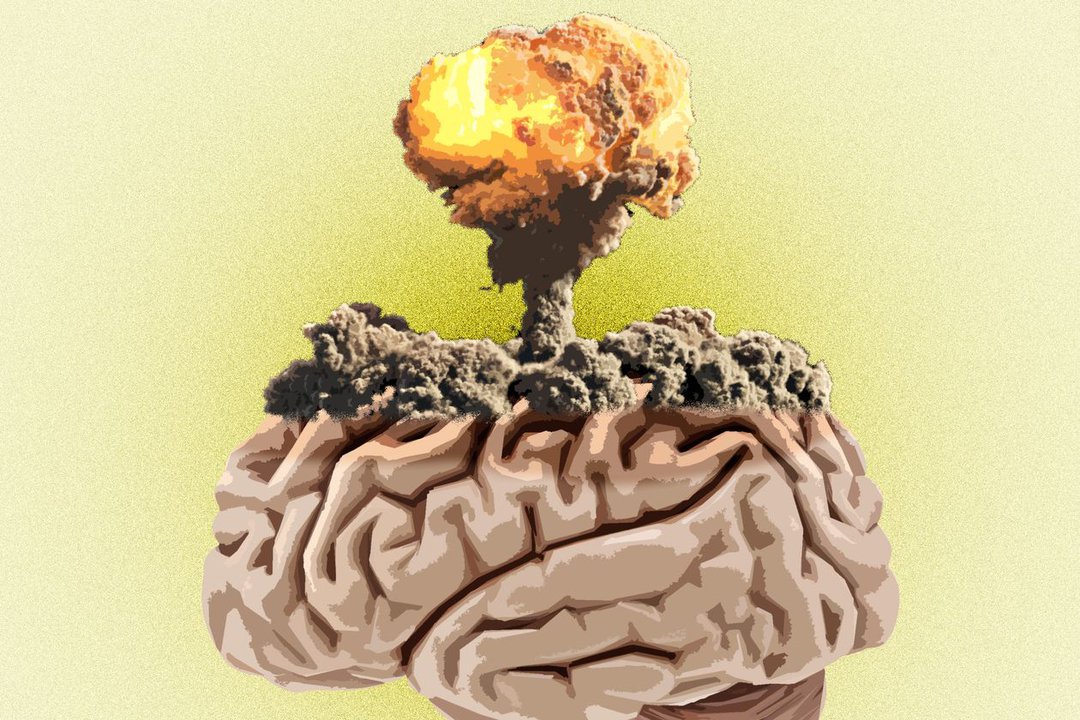
Jason Zewig
March 19, 2020
It isn’t just your portfolio that’s getting pounded. You are, too.
Every financial asset is falling at once, and the economy itself seems to be imploding. All investors—individuals and professionals alike—need to understand the havoc this kind of stress wreaks on the human brain. To keep it from destroying your long-term investing plan, you will need to manage that stress and restore a sense of control.
A market crash is always scary, but this time the fear and panic of huge daily drops are compounded by the dread and uncertainty of a global pandemic. As the markets crash and the virus spreads, many of us are watching in unprecedented social isolation, unable to be with many of the friends and family who normally help us put events in perspective.
All of this is unleashing a storm of stress in our brains. Understanding it may help us calm it.
“Stress is going to make investors less of who they are, an impoverished version of themselves,” says Peter Sokol-Hessner, a cognitive neuroscientist at the University of Denver. “It causes you to fall back on simpler methods of approaching your world. You have a decreased ability to use your previous experiences and knowledge to make smart choices in new settings.”
Acute stress puts your body and brain on red alert: As your bloodstream floods with adrenaline and noradrenaline, your pulse, blood pressure, breathing rate, and sweat production rise. Your prefrontal cortex, the area of the brain responsible for long-term planning, becomes less active. Your muscles tense. Your body releases cortisol, raising your blood sugar levels to mobilize your stored energy.

PHOTO: PHOTO ILLUSTRATION BY EMIL LENDOF/THE WALL STREET JOURNAL; PHOTOS: ISTOCK
“As our bodies get ready for responding to threat with a flight-or-flight response, that affects our cognition and perception,” says Mauricio Delgado, a psychologist at Rutgers University in Newark, N.J. “It narrows our attention and focus.”
If, for instance, you’re watching markets collapsing on financial television, you might not even notice that someone in your family has walked into the room and is talking to you. That same tunnel vision can blind most of us to positive news that may already be developing on the periphery of this calamity.
Meanwhile, stress intensifies the negative. “As your threat sensitivity rises, you’re more likely to bias your predictions toward something bad happening,” says Candace Raio, a cognitive neuroscientist at NYU Langone Health in New York.
And it can tatter your ability to think for yourself. “In looking for the quickest way to resolve uncertainty and to assure safety and survival,” says Dr. Raio, “you might also be weighing what other people are doing more than the objective information in front of you.”
Stress also impedes your working memory, narrows the variety of choices you consider in making decisions and increases activation in the amygdala, a region of the brain that responds to danger.
“Any type of stress—mild, severe, chronic, acute—will impair your ability to think flexibly, to draw on the functions of the prefrontal cortex, to exert executive control,” says Elizabeth Phelps, a neuroscientist at Harvard University.
All the more reason why it’s so important right now to make sure your decisions will stand the test of time.
A few techniques can help.
First, take charge of whatever you can. “When people perceive they have some control over their environment,” says Prof. Delgado, “that simple belief can help them persist in pursuing their goals.”
So make your mind up about what to do only when the financial markets are closed, to keep other people’s panic from dominating your decisions.
And take small steps, not big leaps.
If you feel you can calm yourself only by ditching some stocks, sell a fixed amount or percentage each month for the next year or so. Automate that process with your broker or fund company through prearranged electronic transfers that will take your emotions out of the decision.
With guidance from your accountant, you might selectively sell shares that have fallen below your purchase price. That will turn some of your losses into cash—and a write-off on your taxes.
You could also direct your dividends into cash, rather than more shares, for now.
As I wrote in 2008, try reappraising the situation: “Forget what you paid for that stock or fund; instead, imagine it was a gift. Now that it is priced, say, 20% more cheaply than in December, should you want to return the gift? Or should you buy more while it is on sale? (If rethinking a fallen price this way doesn’t make you feel better, maybe you should sell.)”
Combat the contagion of other people’s stress however you can. Warren Buffett reportedly calms himself by looking at snapshots of his family.
Social isolation is a threat to your portfolio as well as to your mental health. Without normal social contact, it’s much harder for people to regulate their emotions, says Jamil Zaki, a social psychologist at Stanford University.
Even if you are sheltering in place to combat the spread of coronavirus, it’s vital to remain as connected as possible with friends, family, mentors, and people you admire. “We need to be separate physically but with each other psychologically,” says Prof. Zaki. “That means using technology to create shared experience.”
So don’t just call an investing buddy to say hello. Do a video tour of your home office, make the same meal at the same time, run a meeting of an investing book club together—anything that enables you to share some quiet and calming time with someone important to you.
Write to Jason Zweig at intelligentinvestor@wsj.com
Copyright 2020 Dow Jones & Company, Inc. All Rights Reserved.



